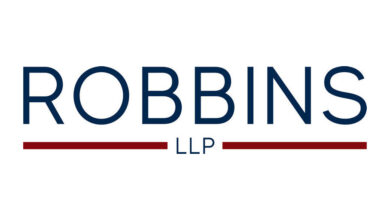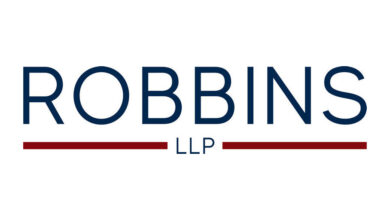Global Mesenchymal Stem Cells / Medicinal Signaling Cells (MSCs) Strategic Research Report 2023: Activities of 110+ Leading MSC Companies, Including their Core Technologies and Products – ResearchAndMarkets.com

DUBLIN–(BUSINESS WIRE)–The “Mesenchymal Stem Cells / Medicinal Signaling Cells (MSCs) – Advances & Applications, 2023” report has been added to ResearchAndMarkets.com’s offering.
This global strategic report presents market size figures with forecasts through 2030, as well as rates of MSC clinical trials, scientific publications, patents, funding events, and strategic collaborations.
It also presents the pipeline for MSC-based therapeutics, identifies leading market competitors, and explores future directions for the industry at large. With the competitive nature of this global market, you don’t have the time to do the research. Claim this report to become immediately informed, without sacrificing hours of unnecessary research or missing critical opportunities.
MSCs are multipotent cells that can differentiate into a variety of cell types, including but not limited to osteoblasts, chondrocytes, myocytes, and adipocytes. In addition to secreting factors that can stimulate tissue repair, MSCs can substantially alter their microenvironment, exerting effects that are both anti-inflammatory and anti-fibrotic. MSCs are advantageous over other cell types for a variety of reasons, including that they are immuno-evasive, making them an advantageous cell type for allogenic transplantation.
MSCs appear to be an exceptionally promising tool for cell therapy, because of their unusual advantages, which include availability, expandability, transplantability, and ethical implications. Interest in therapeutic applications of human MSCs arises from their diverse ability to impact human health, as well as their ability to migrate to sites of tissue injury/inflammation or tumor growth.
MSCs are essential raw materials for many regenerative medicine products, including cell-based therapies, engineered tissues, exosome products, cosmeceuticals, and cultured meat production. MSCs are also well-suited for use in the exponential growth field of 3D printing and numerous companies are working on manufacturing technologies to support the commercial-scale production of MSCs.
Today, numerous market competitors are also exploring commercialization strategies for MSC-derived extracellular vesicles (EVs) and exosomes, because these extracellular “packages” represent a novel strategy for accessing the therapeutic effects of MSCs without the risks of administering whole cells to patients.
Gene editing of MSCs for overexpressing antitumor genes or therapeutic factors is broadening their application as well. Despite the challenges associated with commercializing MSC-based therapeutics, there are more than 100,000 scientific publications published about MSCs and over 1,100 MSC-based clinical trials underway worldwide.
Clinical trials involving MSC therapeutics have risen in recent years, in part due to trials related to COVID-19. Current “hotspots” for MSC clinical trials include the U.S., E.U., China, Middle East, and South Korea. While many early-stage MSC trials have demonstrated safety and efficacy, only a small number of MSC products have reached commercialization, indicating that the therapeutic market for MSCs remains early-stage. The first MSC-based cell therapy product was approved in 2010 in South Korea. To date, ten MSC-based cell therapy products have gained approval, as well as 19 MSC-based bone matrices.
While therapeutic success has been challenging, the demand for MSC-based research products has surged in recent years, with most large research product suppliers now offering a variety of MSC-based products, services, kits, and manufacturing tools.
Major players involved in the market for MSC-based research products include Lonza, Thermo Fisher Scientific, Sigma Aldrich, VWR, Sartorius, ATCC, EMD Millipore, and others. Smaller and mid-sized players are also competing in this promising market, including but not limited to Axol Bioscience, StemBioSys, PromoCell, and iXCell Biotechnologies.
To date, the company to establish itself with the greatest domain knowledge in the area of MSC-based products and manufacturing technologies is RoosterBio, headquartered in Frederick, Maryland, USA.
Cynata Therapeutics is also working diligently on technologies to enable large-scale production of MSC-based therapeutics, although it is exclusively focused on MSC-based therapeutics and is using its CymerusT platform technology to produce nearly infinite numbers of iPSC-derived MSCs. It is concurrently pursuing several clinical trials worldwide. In the coming years, an increasing number of research products and therapeutic products will continue to be developed around MSCs and their differentiated cell types.
Within this rapidly changing landscape, having a thorough understanding of the competition is essential. Therefore, this global strategic report details the activities of 113 leading MSC companies, including their core technologies and products under development. It presents detailed market size figures for the global MSC market, segmented by Geography and Business Segment, and accompanied by future forecasts through 2030.
This global strategic report includes:
- Market size determination for the global MSC market, segmented by Geography and Business Segment
- Future forecasts for the Global MSC Market through 2030
- Major diseases addressed by MSCs in the ongoing clinical trials
- Cost of manufacturing autologous and allogeneic MSCs
- Rates, quantities, geographic locations, and types of MSC clinical trials
- Types and sources of MSC industry funding
- Detailed MSC patent analysis, including rates and geographic breakdown of MSC patents
- The top owners, inventors, and sponsors of MSC patents
- Recent business developments related to MSCs, including strategic collaborations and partnerships
- MSC-based products with marketing approval and the companies commercializing them
- Currently marketed MSC-based bone matrices
- Pricing comparison of MSC-based products with marketing approval
- The pipeline for MSC-based therapeutics
- Emerging applications for MSCs, including genetic modification, 3D bioprinting, clean meat production, and cosmeceuticals
- Company profiles for MSC market competitors, including their products, services, and technologies under development
- Dozens of charts, figures, and tables
- And so much more
Key Topics Covered:
1. Report Overview
2. Mesenchymal Stem Cells (MSCS): An Overview
3. Published Scientific Papers On Mscs
4. Stem Cells Patent Landscape: An Overview
5. MSCs: Clinical Trial Landscape
6. Bioengineering Solutions To Boost MSC’s Functions
7. Manufacturing Of MSCS
8. Small Scale Processing Of MSCs
9. Large-Scale Manufacturing Of MSCS
10. Contract Manufacturing For Cell & Gene Therapies
11. Major Diseases Addressed By MSCS
12. Current Status Of Mesenchymal Stem Cell Industry
13. Recent Collaborations In MSC Sector
14. Market Analysis
15. Company Profiles
For more information about this report visit https://www.researchandmarkets.com/r/xhw5im
About ResearchAndMarkets.com
ResearchAndMarkets.com is the world’s leading source for international market research reports and market data. We provide you with the latest data on international and regional markets, key industries, the top companies, new products and the latest trends.
Contacts
ResearchAndMarkets.com
Laura Wood, Senior Press Manager
[email protected]
For E.S.T Office Hours Call 1-917-300-0470
For U.S./ CAN Toll Free Call 1-800-526-8630
For GMT Office Hours Call +353-1-416-8900



